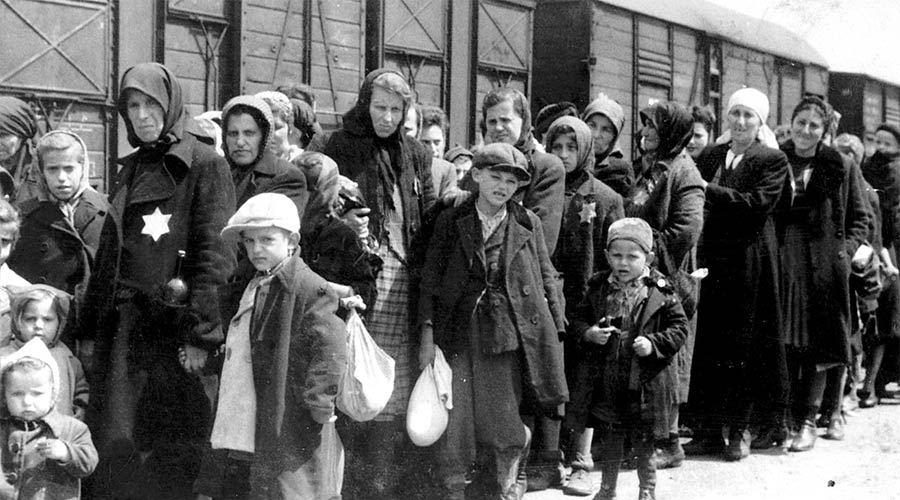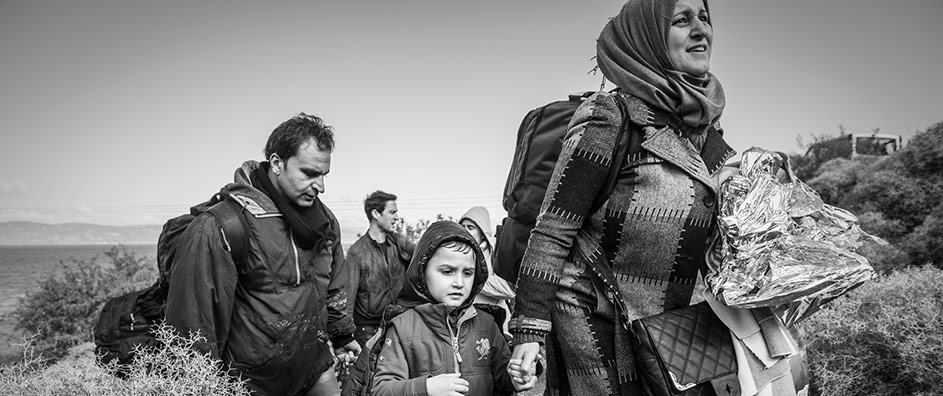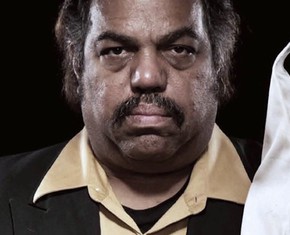The views expressed in our content reflect individual perspectives and do not represent the authoritative views of the Baha'i Faith.
The Nazis’ 4-step plan for exterminating minorities involved an escalating campaign of prejudice, scapegoating, discrimination and then active persecution.
You already know what these four steps culminated in: the Jews were rounded up, herded into cattle cars and transported by rail to concentration camps. The soldiers gave them no food or water, and tossed a bucket in so people could relieve themselves. Men, women, and children needed to stand with their arms above their heads to make room for everyone, sometimes for several days. Always, some died en-route.

On arrival, a cursory inspection separated those to be immediately executed from those selected for slave labor. Others were forced to undergo inhumane “scientific” experiments.
The Nazis wanted the exterminations and starvation kept secret, but the scale of their operations made that impossible. Eyewitnesses reported to the Allies. The Allies’ lack of action was likely due to their focus on winning the war and perhaps their own anti-Semitism, but also as a result of disbelief that such atrocities could occur—and on such a massive, incomprehensible scale.
Unfortunately, we still haven’t gotten past that denial in many places. These kinds of genocidal campaigns targeted at religious or ethnic minorities still exist in the world today. In Myanmar, also known as Burma, the Muslim Rohingya people face genocidal discrimination. In Iraq, ISIS has repeatedly attacked the brutally persecuted Yazidi minority, and the United Nations has declared their attacks a genocide. In Iran, the Baha’is are heavily persecuted by the political regime that runs the government.
Many if not most of these regimes learned their hateful tactics from the Nazis. They all tend to follow the same pattern of gradually encouraging prejudice; then scapegoating an entire population, ethnicity or religion; then officially sanctioning discrimination; then engaging in open persecution.
When we see these kinds of campaigns beginning, what is our individual responsibility? Many who participated or knew about the Holocaust as it happened assuaged their guilt by saying, “I had no choice.” But the Baha’i teachings say we all have a choice:
Each man has been placed in a post of honour, which he must not desert. A humble workman who commits an injustice is as much to blame as a renowned tyrant. Thus we all have our choice between justice and injustice. – Abdu’l-Baha, Paris Talks, p. 160.
Three of my friends were Holocaust survivors. Two of them faced their pain and bore witness to history in hopes that others would “never forget” and that the future might benefit from their stories. The third went to his death never having uttered a word about his suffering. What all three had in common was their genuine love and compassion for all with whom they met; each was immensely generous in spirit and in action. Let us learn from them. They embodied this Baha’i principle:
The tabernacle of unity hath been raised; regard ye not one another as strangers. Ye are the fruits of one tree, and the leaves of one branch. We cherish the hope that the light of justice may shine upon the world and sanctify it from tyranny. – Baha’u’llah, Gleanings from the Writings of Baha’u’llah, p. 218.
Although the Jewish people’s cry of “Never again” is meant to encompass all peoples, yet we see persecutions and genocidal policies still occurring around the world. Would that everyone would internalize and heed Baha’u’llah’s unifying injunction:
O children of men! Know ye not why We created you all from the same dust? That no one should exalt himself over the other. Ponder at all times in your hearts how ye were created. Since We have created you all from one same substance it is incumbent on you to be even as one soul, to walk with the same feet, eat with the same mouth and dwell in the same land, that from your inmost being, by your deeds and actions, the signs of oneness and the essence of detachment may be made manifest. Such is My counsel to you, O concourse of light! Heed ye this counsel that ye may obtain the fruit of holiness from the tree of wondrous glory. – Baha’u’llah, The Hidden Words, p. 20.
You May Also Like
Comments

















DVD series so long it gives some sensation of being in "real time",
which in a small way demonstrates
the wearisome and desensitizing
nature of war and chronic atrocities:
"WWII Diaries". Maybe such an intense immersion in history is the
best way of making each generation
"never forget" and be attuned to the
warning signs.